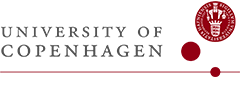Lesson 3: Evaluating sources
It is important to be critical of the information you want to use in your thesis, and there are certain things to keep in mind depending on which type of source you are using.
Peer-reviewed journals and well-renowned book publishers have evaluated the quality of the information for you.
But how can you judge other literature you have found on the internet or through the library? And how can you efficiently select the literature that is relevant for your thesis if your search terms have produced hundreds of results?
A quick way to decide if a particular source contains the required information is to read the abstracts of the article or to consult the table of contents of the books.
Whether you are using books, journals or other sources you want to make sure that the information is reliable and objective. E.g. the authors’ background funding and affiliation is relevant to consider:
- Are the authors and/or editors experts?
- What is their education and affiliation?
- Is their research funded by government grants, private organisations or a commercial firm?
- Is contact information for the authors provided? (Email, snail mail address or phone number)?
You can then check if the content of an article, book etc. is up to date by examining:
- Is the article cited and is there additional and more current information in these articles?
- When was the book published? Has the book been published in a newer edition?
- When was the information on the homepage last updated?
Find a more detailed description on how to evaluate different kind of sources in the following.



